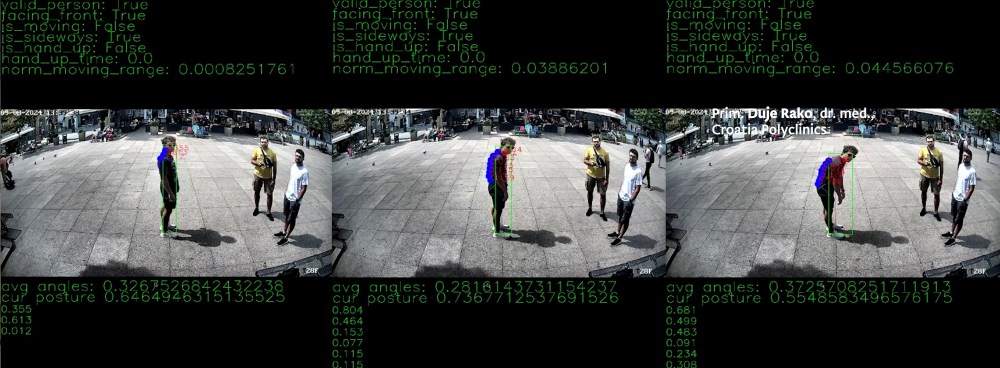What if your morning commute could diagnose a spinal issue before you even made it to work? In a compelling blend of public health, technology, and design, Croatia Polyclinic has partnered with Croatian-based agency Bruketa&Žinić&Grey to turn a national health crisis into a moment of creative intervention.
Facing what experts call a “silent pandemic” of spinal issues — conditions affecting nearly half of Croatia’s population — the country has long battled a cultural reluctance to seek professional treatment. This campaign flips that hesitation on its head. Rather than waiting for patients to book an appointment when their symptoms become too severe to ignore, the Croatia Polyclinic brings the clinic to the people.
Bruketa&Žinić&Grey crafted a nationwide public health campaign that transforms everyday urban spaces, such as bus stops and digital billboards, into interactive spine screening stations. Using computer vision technology, the billboards analyze posture in real time and offer instant feedback, encouraging early intervention and helping combat the country’s widespread, often-ignored spinal health issues.
Here’s where the magic of design comes in: the interface is sleek, non-intimidating, and informative without being overtly clinical. Using computer vision and eight key posture analysis points, the billboard delivers instant visual and numerical feedback on the health of a person’s neck, mid-back, and lower spine. If an issue is detected, a QR code directs users to a booking page for a physiotherapist, bridging awareness and action with one scan.
The campaign is a stunning example of how design can serve the public good while remaining human, intelligent, and intuitive.
What makes this initiative especially compelling is how seamlessly it integrates into daily life, catching people during their commute, a time when they’re typically hunched, distracted, or disengaged. By embedding health screening into a familiar urban setting, the campaign sidesteps fear-based messaging and instead invites curiosity and reflection.
Design plays a pivotal role, in aesthetics and accessibility, transforming passive public spaces into active health interventions. Clear visuals, intuitive interactions, and empathetic technology come together to raise awareness and spark meaningful change. The campaign becomes design not as decoration, but as diagnosis and infrastructure; a stunning example of how design can serve the public good while remaining human, intelligent, and intuitive.
For Bruketa&Žinić&Grey, long considered one of the region’s most inventive agencies, the project extends beyond a typical creative brief. It reflects a broader approach to design as a reminder of what design can achieve when it moves beyond the brief. A reminder that design can engage with public health not through persuasion alone, but through direct, functional interaction.
In a world where most advertising interrupts, this one quietly helps.
The post Croatia Polyclinic’s Digital Billboards Have Your Back appeared first on PRINT Magazine.

